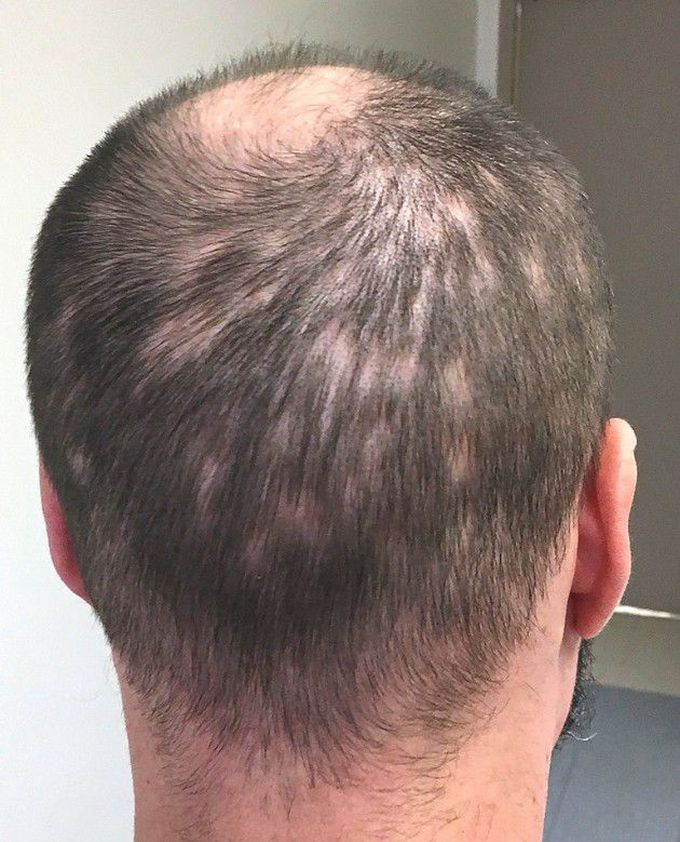


Syphilitic Alopecia
A 35-year-old man with a history of bipolar disorder presented to the emergency psychiatry service with paranoid delusions. On physical examination, he was found to have patchy, irregular alopecia of the scalp and faint, erythematous macules with subtle scales on the trunk and the arms and legs. The rash was not apparent on the palms or soles. Aside from the mood disturbance, which was consistent with the patient’s previous psychiatric presentations, the results of the neurologic examination were normal. Laboratory tests revealed a rapid plasma reagin titer of 1:128, and the result of a confirmatory test for antibodies to Treponema pallidum was positive. A test for antibodies to the human immunodeficiency virus was negative. A nonscarring alopecia with a “moth-eaten” appearance is characteristic of secondary syphilis. Although syphilitic alopecia is uncommon, it may be the only manifestation of secondary syphilis observed on patient presentation. Hair typically regrows after antibiotic treatment. The patient received an intramuscular injection of penicillin G benzathine, and within days the rash resolved. His mood stabilized with treatment for bipolar disorder that included antipsychotic medications, and he was discharged home. He was subsequently lost to follow-up.

